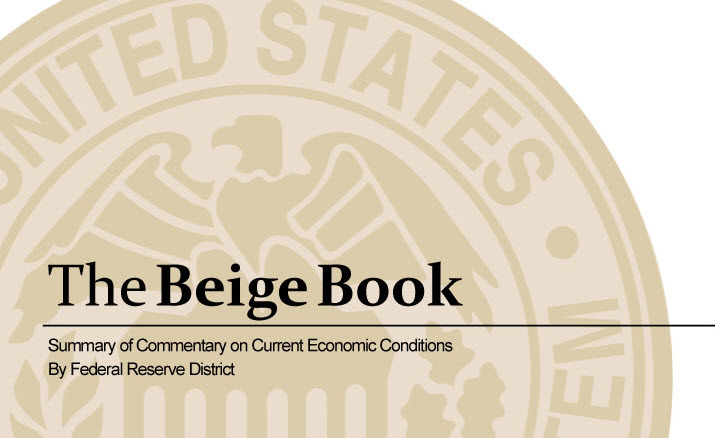Feds Beige Book for April 2021

- National economic activity accelerated to a moderate pace from late February to early April. Consumer spending strengthened
- Employment growth picked up over the reporting period, with most Districts noting modest to moderate increases in headcounts.
- Consumer spending strengthened
- Reports on tourism were more upbeat
- Auto sales grew, even as new-vehicle inventories remained constrained by microchip shortages
- The picture in nonfinancial services generally improved
- Despite widespread supply chain disruptions, manufacturing activity expanded further with half the Districts citing robust growth
- Outlooks were more optimistic than in the previous report, boosted in part by an acceleration in COVID-19 vaccinations
Here is the overall message on inflation:
Prices accelerated slightly since the last report, with many Districts reporting moderate price increases and some saying prices rose more robustly. Input costs rose across the board, but especially in the manufacturing, construction, retail, and transportation sectors-specifically, metals, lumber, food, and fuel prices. Cost increases were partly attributed to ongoing supply chain disruptions, temporarily exacerbated in some cases by winter weather events. There were widespread reports of increased selling prices also, but typically not on pace with rising costs. Contacts generally expect continued price increases in the near term.
In the smaller breakdowns, you have the Boston Fed noting that "several contacts expressed growing concerns about inflation." Expect to see more of that in the coming months.
The Cleveland Fed was more constructive:
Contacts generally expected cost pressures to persist in the near term, with one suggesting that "the imbalances causing costs to rise are not likely to be resolved quickly." However, many expect supply chain challenges to dissipate later in the year, and this will ease cost and price pressures.
Ultimately, it comes down to pricing power, something the Atlanta Fed touched on:
Reports on pricing power were mixed. Industries with strong demand have managed to pass through most input cost increases, while others plan to implement price increases over the coming year as activity returns
The KC Fed also said this:
Among firms experiencing price pressures, more than half indicated that they were able to pass a majority or all of their cost increases through to customers.



